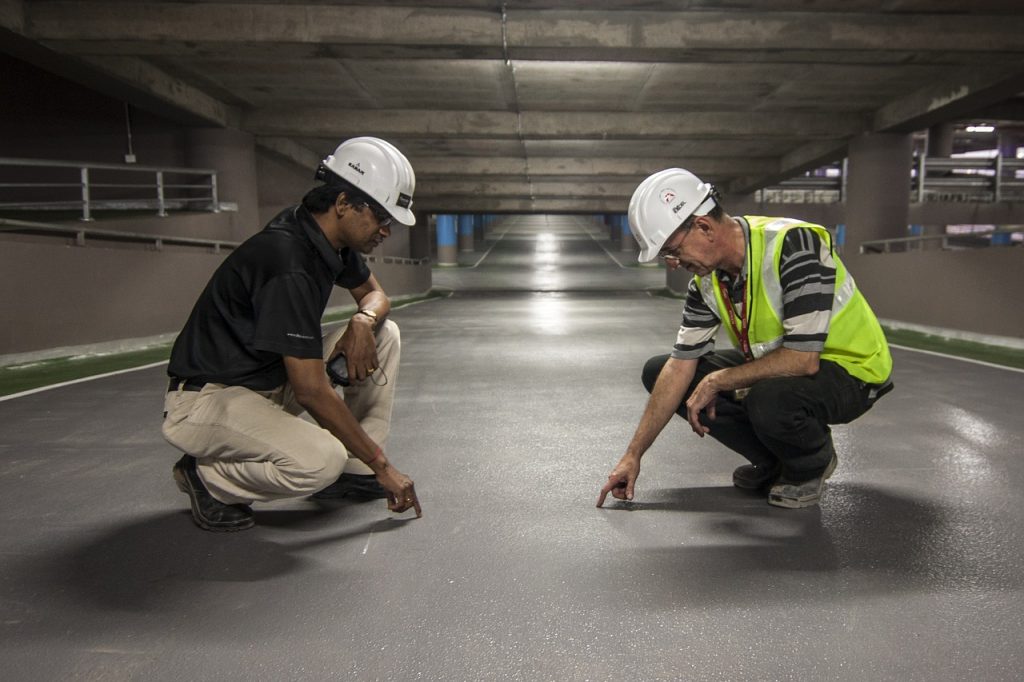Supervisors, or front-line supervisors, can be employed in a wide variety of industries.
Responsibilities of a supervisor typically depend on the industry they work in.
However, even with specifics determined by the industry, supervisors share an array of responsibilities, skills, and required experience.
Article Table of Contents
What Does a Supervisor Do
Supervisors are responsible for overseeing the activity of particular teams or crews ensuring they perform their job with the needed quality and maintaining safety.
Supervisors manage concerns in the field, help resolve conflicts, and help their teams meet deadlines and keep up with other job requirements.
For this, supervisors need excellent communication and interpersonal skills.
Supervisor Job Responsibilities
- Assign tasks, shifts to employees and allocate them to departments.
- Assess the performance, actions, and attitude of the employees and discipline them if needed.
- Recruit and teach employees.
- Provide safety training to the staff and ensure compliance with safety rules and regulations.
- Ensure good organization and safety of the work areas for employees and visitors.
- Report work-related accidents such as equipment breakdown, injuries or theft to other managers.
- Order and restock supplies, equipment, and inventory.
- Track production results, sales, costs, work activities, and employee time.
- Resolve issues between employees or among the departments.
Depending on the field, the duties can vary and be more specific.
For example, a retail store supervisor is responsible for assigning sales associates and cashiers to the departments.
In manufacturing, they should ensure that the workers wear safety equipment and that safety devices operate properly.
Supervisors employed in the food preparation facilities ensure that the employees keep up with sanitation rules and regulations, such as food storage temperatures.
Fundamental Skills
Management:
Supervisors should be aware of the right way to direct employees and determine how, where, and when it is done.
For example, it involves determining spikes in shoppers or demand for production.
In the construction industry, a supervisor should determine which employees are needed at which stage of the project.
Supervisors should also be able to resolve conflicts, discipline employees if breaches of rules or policies occur.
Interpersonal:
Interpersonal skills of a supervisor include the ability to build trust and promote a positive environment, support the workers and provide honest feedback.
Supervisors gain credibility if they are able to justify their decisions and admit their mistakes.
Communication:
Supervisors should know how to give clear instructions to their employees and transfer goals and tasks to archives.
They may use graphic examples to convey their points, messages, and ideas.
On a daily basis, they communicate through email, individual or group meetings a lot.
They should also be able to listen to feedback from the upper-level management and employees, as well as hear and answer employees’ questions.
Detail-oriented:
Supervisors deal with planning and monitoring things such as schedule, needs of the staff at certain times, sale volumes and production results.
Excellent attention to detail helps supervisors make sure that products and services, as well as employees, meet safety and quality standards.
How to Become a Supervisor
To become a supervisor, one needs work experience in a certain area.
If they have experience with practical tasks, they are qualified to give instructions and feedback to employees.
The education required for the position usually includes post-secondary education at a technical or community college.
However, some companies choose to hire college graduates.
Training and Qualifications
As a bare minimum, supervisors should have a high school diploma.
A college education is beneficial, but it isn’t a requirement.
For instance, according to O*NET, 40% of supervisors in the retail industry have a high school diploma, and only 20% of them are college graduates.
In manufacturing, about 23% of supervisors hold a bachelor’s degree while one in three supervisors in construction has some college education.
Depending on the hiring company, the supervisor may be trained in leadership or management.
In some specific fields, for instance, road construction, a supervisor would have to undergo training in safety requirements and methods for work sectors.
Experience
Supervisors usually acquire their position after some time working in a specific field or with a particular employer.
For example, supervisors in the electrical or plumbing field, or construction are former apprentices.
In the retail sector, employees with an extensive work history can be promoted to a supervisor.
In some industries, supervisors must obtain certifications.
For example, supervisors of road crews in traffic control need a Flagger Certification which proves the ability to slow, guide, or stop traffic at the work areas.
Working Hours
Supervisors typically work full-time.
Most of the manufacturing departments or stores operate continuously, so supervisors may have to work in the evenings, on weekends, or at night.
A lot of retail stores are open 24/7.
Road crews’ schedule may involve evenings when the traffic flow is lower.
In restaurants, supervisors may work in the mornings, evenings, and afternoons, depending on what menu the restaurant is offering.
Restaurants are busy the most on weekends and special occasions such as Christmas, Mother’s Day, or Valentine’s Day.
Office supervisors mostly work during standard hours and have weekends off.
However, in some offices, such as medical, work in the evenings or on weekends can be involved to meet the client’s schedules.
Career Outlook
The perspectives of employment growth vary in different industries.
According to O*NET, the supervisors’ employment rate is supposed to grow by 9-13% by 2024 in “Construction Trades and Extraction Workers” sector.
This means 103,600 new job openings.
On the other hand, in “Production and Operations Workers” sector, the employment rate will drop by 2% by 2024.
The employment of retail supervisors will range 2 to 4%.
The perspectives for supervisors often depend on the demand for employees in various industries.
As per the U.S. Bureau of Labor Statistics, the employment rate for fabricators and assemblers should drop by 1%.
The decrease is determined by the development of technology in the production sector.
With good performance and solid experience, supervisors can be promoted to heads of departments or other jobs in upper-management.
Conclusion
Supervisors use their communication skills, ability to identify employees and knowledge of legal standards as well as their company’s standards to direct employees.
Experience is crucial for the work of a supervisor.
Prospects of the job depend on the industry.
Most openings are available in high-demanded industries.
However, industries that widely use technology instead of human labor will have fewer opportunities to offer to supervisors.

